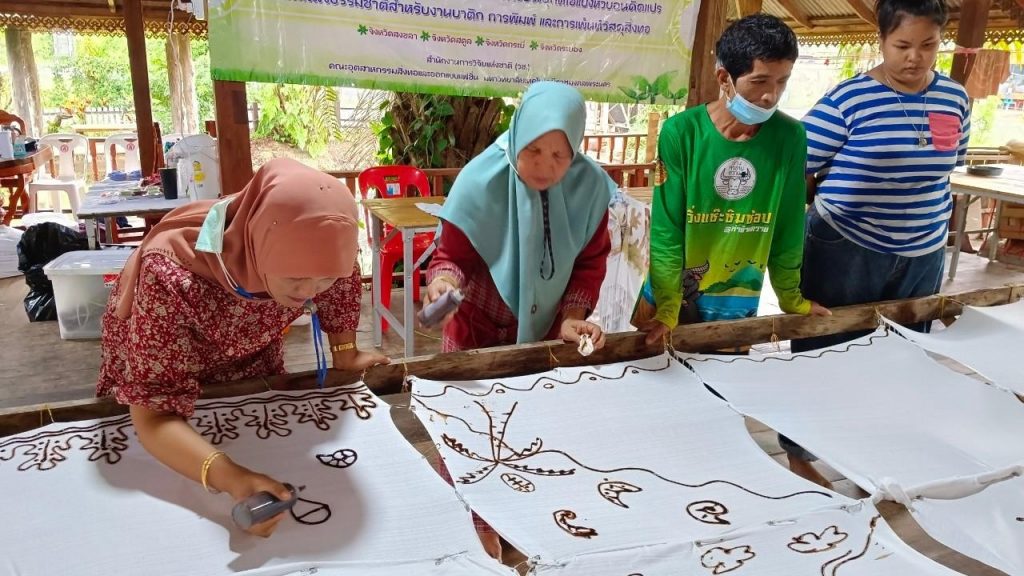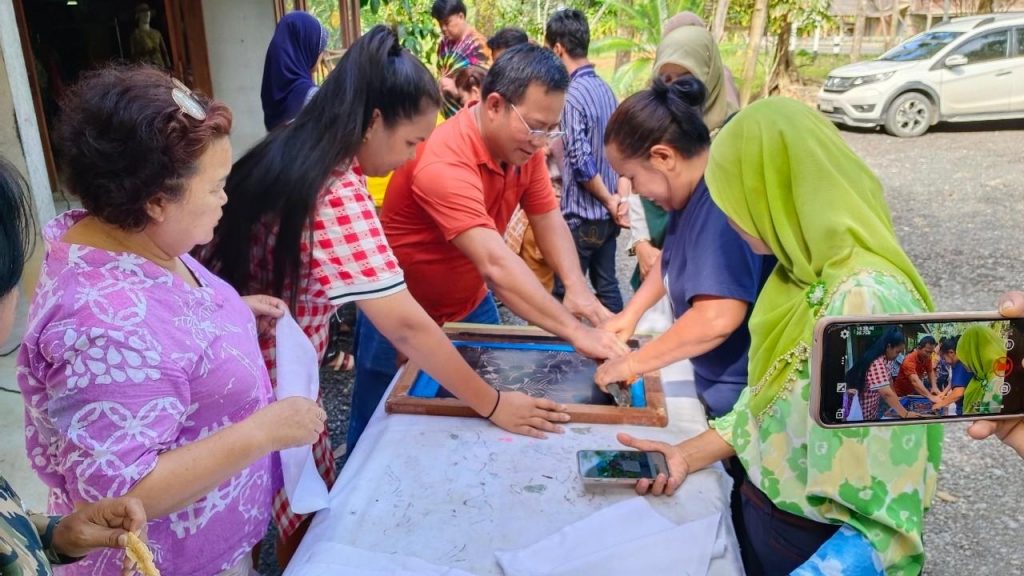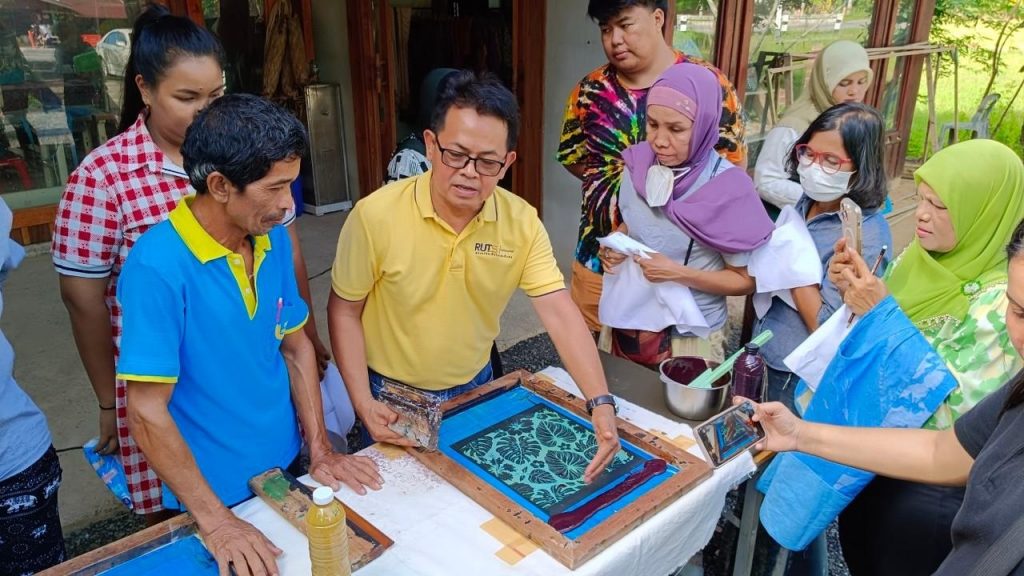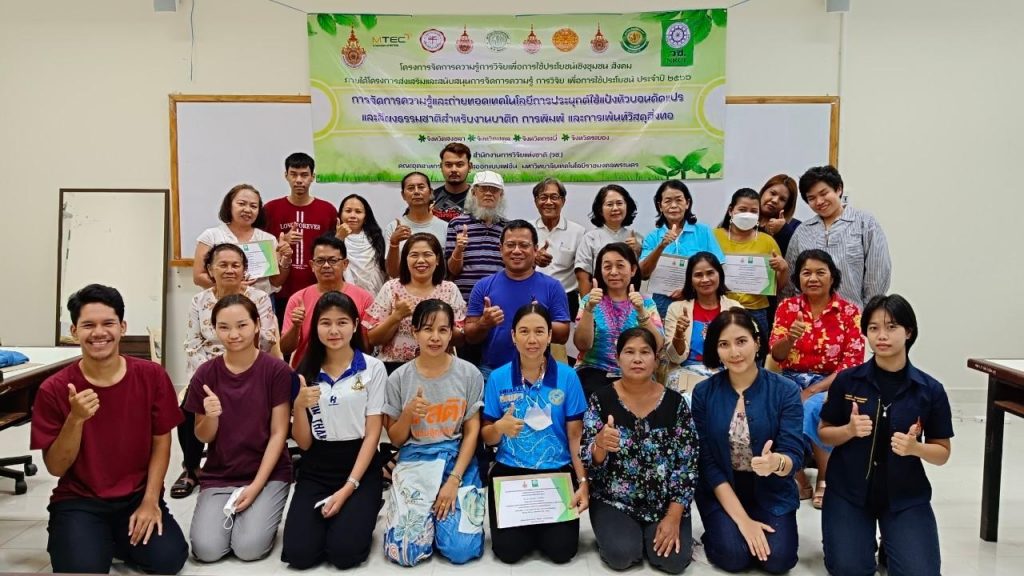“The textile and dyeing industries have a significant environmental impact, especially in releasing wastewater containing dye remnants and chemical substances, polluting water sources. This issue is prevalent in the production of batik fabrics by various community enterprises in Thailand, where the use of wax resists, commonly known as ‘mudmee,’ contributes to clogged drainage pipes due to its dissolution process during hot water application. Additionally, in the dyeing process, especially in fabric printing, chemical dyes are utilized, leading to excess colors and chemicals being washed out during laundering.”






